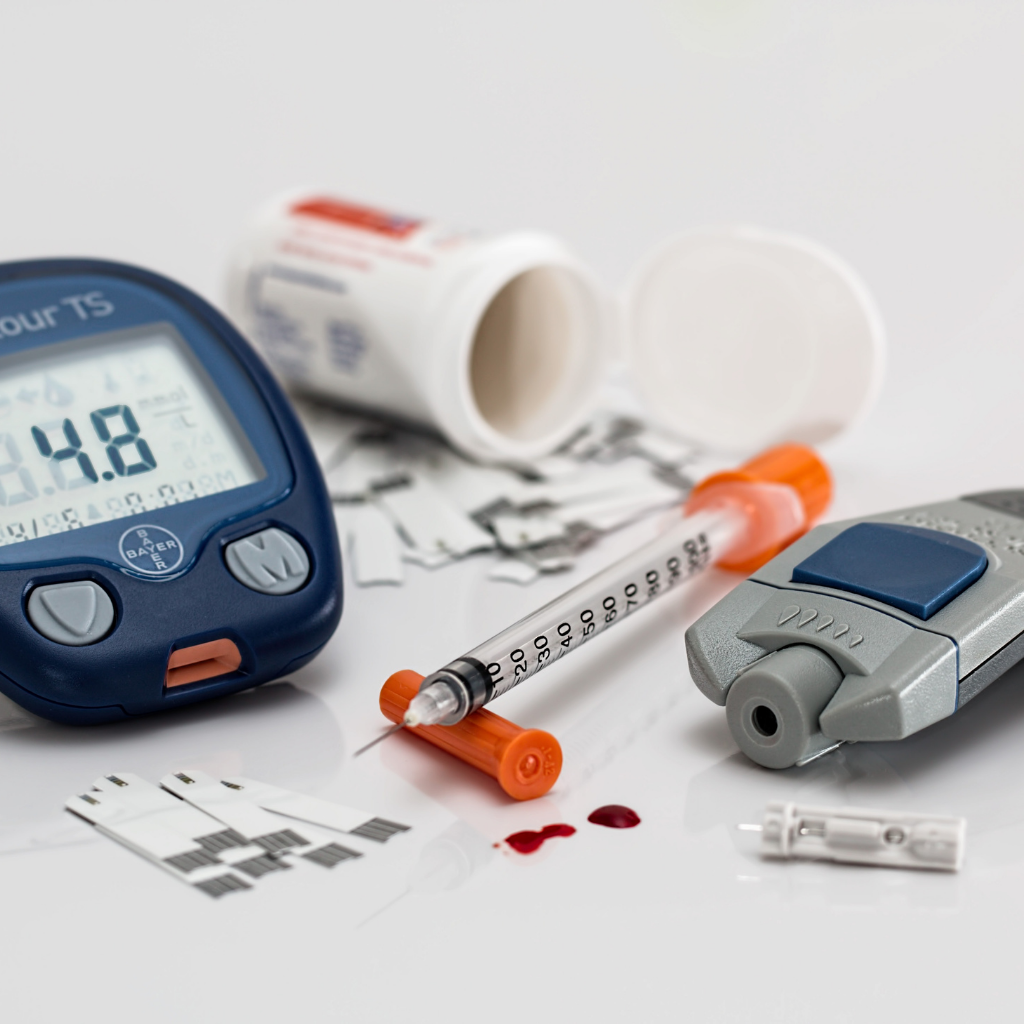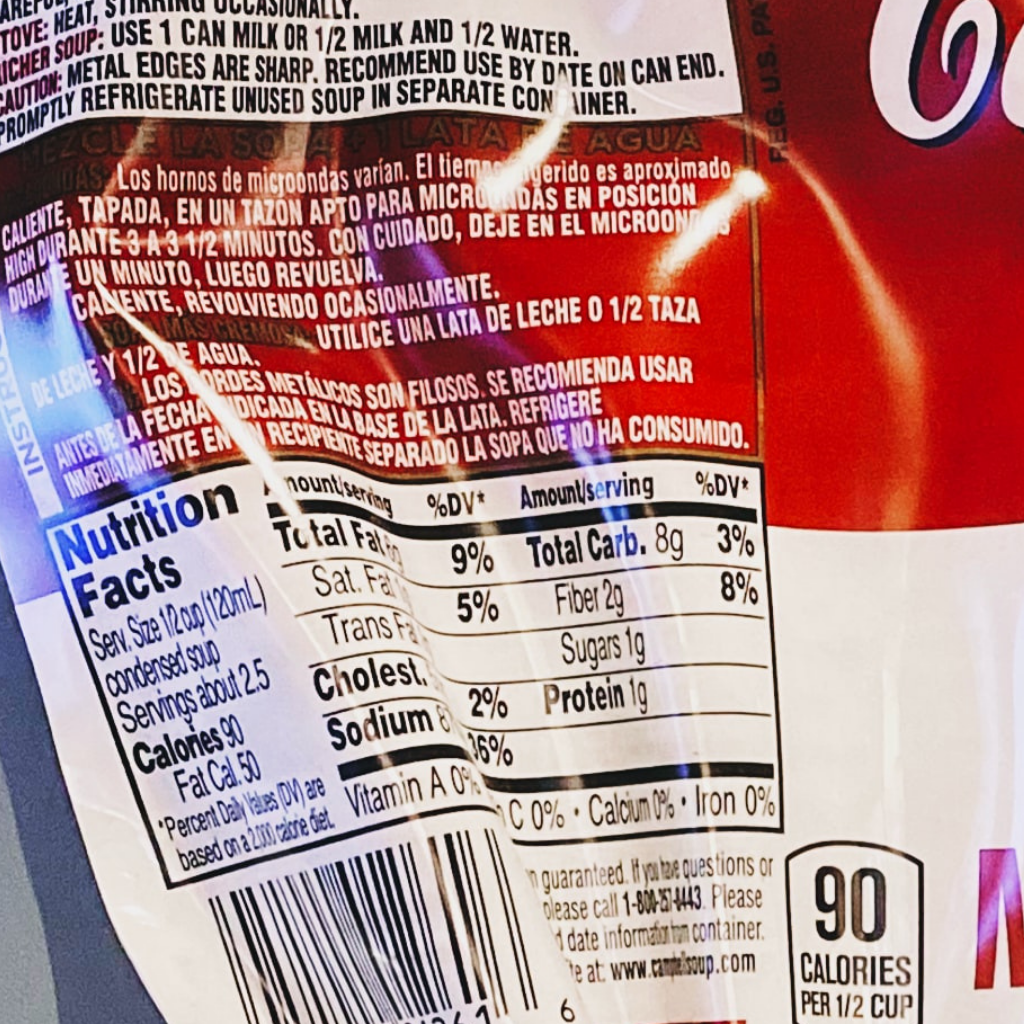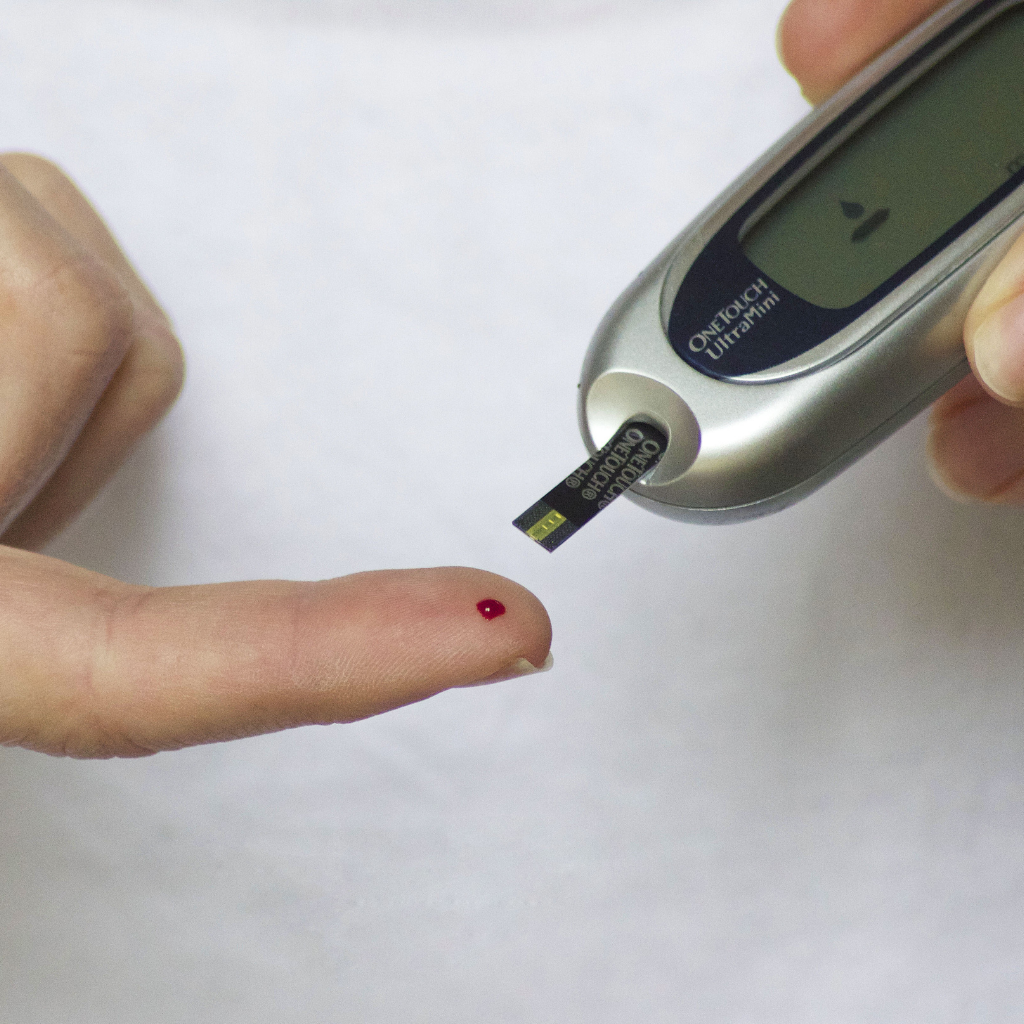Counting macros is often only seen as a solution for weight loss or an increase in muscle composition. While it absolutely can achieve those results, this approach can also be used to manage health complications and chronic disease. Here’s How to Control Type 2 Diabetes by Counting Macros.

When an individual is diagnosed with Type 2 Diabetes, what that really means is that the amount of glucose in their blood is high. Where does glucose come from? All carbohydrates. Whether it’s a piece of cake, a floret of broccoli, a scoop of brown rice, or an apple – all of these items are broken down into the same molecule, glucose. The main goal for a Diabetic should always be blood sugar (a.k.a. blood glucose) control to prevent further complications from developing (i.e. loss of eye sight, loss of feeling in your exterior limbs, heart disease, kidney disease, etc.). Therefore, it is essential to monitor the grams of carbohydrates a Diabetic is consuming per meal and snack time to control the amount of glucose going into their blood. Seems pretty logical, right? Right! What about the other two macros, protein and fat, are they important to control Diabetes? 1,000,000%. If you’re feeling lost or have no idea how to approach your Diabetes nutritionally, don’t worry, I’ll fill you in on everything you need to know! Here’s How to Control Type 2 Diabetes by Counting Macros.

How to Select Carbohydrates for Meals and Snacks
Are all carbohydrates created equal? Absolutely not. They all vary in carbohydrate content and there are two different types of carbohydrates – complex carbs and simple carbs (click the link to go to a previous post that goes in-depth about the different types of carbohydrates). For the sake of this post let’s look at it this way…complex carbohydrates contain fiber and simple carbohydrates do not. Fun fact: fiber slows down the release of sugar (a.k.a. glucose) into the blood. Meaning that if you consume more fibrous foods in your diet, you will have more blood sugar control! Pretty rad, right? Right!
On the other hand, simple carbohydrates are notorious for causing blood sugar spikes (if it’s not paired with a protein and fat, I’ll discuss this below). They are more easily absorbed and utilized quickly as energy for the body. This is also why simple carbohydrates do not leave you feeling full or satisfied for an extended period of time because of how fast they are utilized. This isn’t me trying to convince you to never consume simple carbohydrates, just be smart about it.
Lastly, remember that varying carbohydrate content I mentioned earlier? Yeah, it’s actually a pretty big deal. The most common issue I come across when cleaning up a Diabetic’s diet is that they consume several high carbohydrate foods at one meal, then under consume carbohydrates at the next meal and then they end their day with a simple carbohydrate by itself causing a blood sugar spike. It’s basically the perfect storm for uncontrolled blood sugar. It is IMPERATIVE to establish a carbohydrate gram goal per meal and snack time for blood sugar control. Once you have your goals, it’s time to start reading those nutrition facts labels and using MyFitness Pal (or a similar app) to look up the carb content for foods that don’t have labels (fruits and vegetables). If you need help establishing your carbohydrate gram goals or need more insight on any of this information, I can help.

The Power of Pairing Carbohydrates with a Fat and Protein
Remember how I mentioned above that fiber slows down the release of sugar into the blood? Well, the same thing happens when you pair a carbohydrate with a fat and protein source! Pretty awesome stuff. Also, protein and fat are the two macronutrients that will leave you feeling full and satisfied until your next meal. So tell me again, why are you not counting your macros to make sure that you are consuming a balanced diet and to better control your Diabetes? Exactly.
Pro tip: if you are not in the mood for a complex carb, no worries at all. Pair a simple carb with a protein and a fat to avoid a blood sugar spike, it’s that easy. Regardless of which carbohydrate you select to consume, every meal and snack should be balanced. When I say balanced, I mean that the meal or snack should include a carbohydrate option, a fat option, and a protein option for optimal blood sugar control. Unsure of how to calculate your macro gram goals? I can help.
Overconsumption of Carbs at a Meal, What Do You Do?
First, ditch the guilt. There are always going to be times when overconsumption occurs, it’s okay, you are human. Instead of beating yourself up, let’s be smart about it. When you over consume carbohydrates the best thing you can do is utilize them! You can achieve this by doing any type of cardio you prefer or simply going for a 30 – 60 minute walk after the meal. It doesn’t matter what it is, just get moving and you will be fine.
Underconsumption/Low Blood Sugar
To avoid low blood sugar, the best piece of advice I can give is to check your blood sugar daily. There’s no way to know where you’re at unless you do this, so make it a habit. If you start to feel light headed at any given time and recognize the feeling of low blood sugar, this is not something to throw to the westside. Either grab 4-8 oz. of a fruit juice/any sugary drink in sight or glucose pills (each pill contains 15g of carbohydrates) and go sit down. These two sources are quick acting and will cause your blood sugar to spike, which is ideal in a low blood sugar situation. Wait about 15 minutes, test your blood sugar and assess how you are feeling. If your blood sugar is still too low, repeat the sugary drink or glucose step above, wait another 15 minutes and repeat the test. Do this until you are in a normal range and get some rest.

How to Manage Diet + Medications
Actively checking your blood sugar is the best way to know how effective your diet and medication combo is. You should be taking your blood sugar at least two times per day to assess your control – a fasting blood sugar and a post prandial blood sugar. A fasting blood sugar is when you get a blood sugar reading when you first wake up, before you eat or drink anything. A post prandial blood sugar is when you get a blood sugar reading 2 hours after a meal. Both readings are equally important, are reflections of what’s going on internally, and are crucial data points for Diabetics. If you routinely get abnormally high numbers or abnormally low numbers, something is off and you need to reach out to your doctor immediately. Adjustments in medications and/or diet are likely necessary in either situation.
Getting Off Medications or Reducing the Amount Taken
I’ve never met a Diabetic that did not have this goal in mind, which is great, but it definitely takes some time and fine tuning. Actively working with a Dietitian to monitor your diet, making adjustments as needed, and the ability to give you consistent feedback on your food choices and combinations is priceless when trying to achieve this goal. Also, working with your doctor so that they can monitor the decrease in medications, as well as approve adjustments in the amounts is also a crucial step in this process.
Getting off medications or reducing the amount taken for a Diabetic is an everyone on board type of situation, but I want you to know it’s 100% possible and I’ve seen it happen on many occasions with my own eyes. There’s no greater pride as a Dietitian than to get a client OFF of medications, none. Are you looking to achieve this goal? I can help.
Questions?
I hope you learned a thing or two on how to control your Diabetes by counting macros! If you need further support to reach your goals check out my Macros Nutrition Program. If you have any further questions feel free to comment below or email me at therealisticdietitian@yahoo.com


hi i have active crohns ans was fasting all day so i could have somewhat of a life and eating at night. oh m diabetic now and also had my gall bladder removed. i’ve gained a lot of weight and have no idea what to eat. I’ve tried researching diets for Crohns and diabetic but i don’t think it exists.
Hi Stella,
If you’d like to see guidance on this please refer to my nutrition counseling page and reach out to me there. I can definitely help you to figure out a game plan in regards to what is going on with you.
Andrea